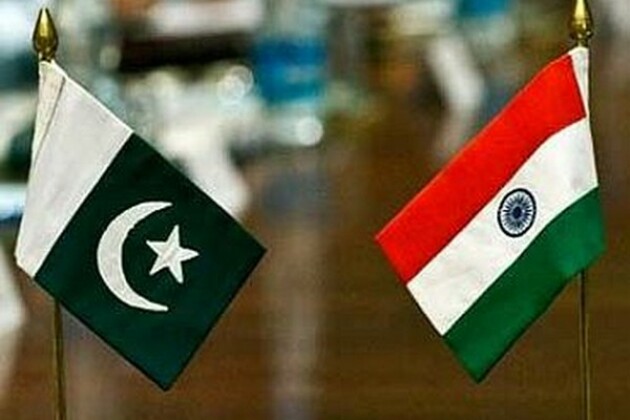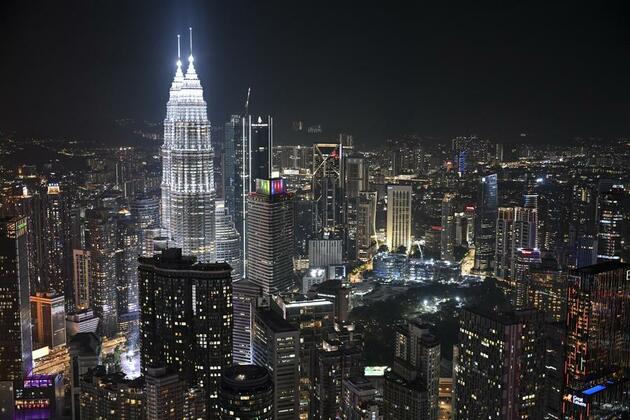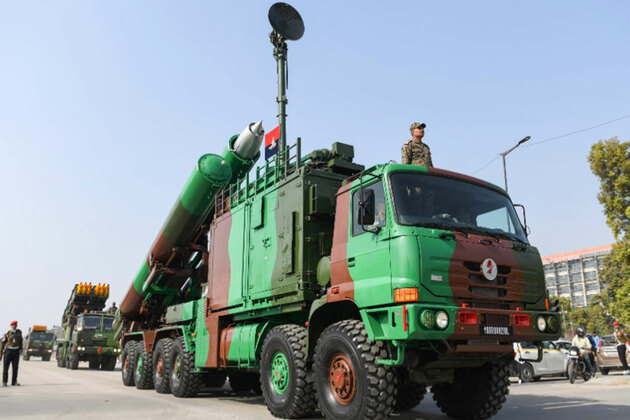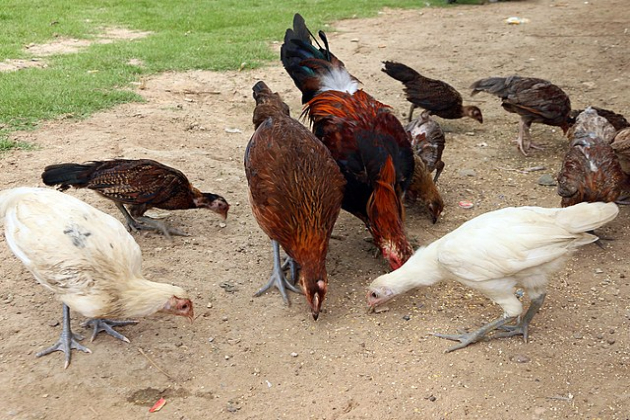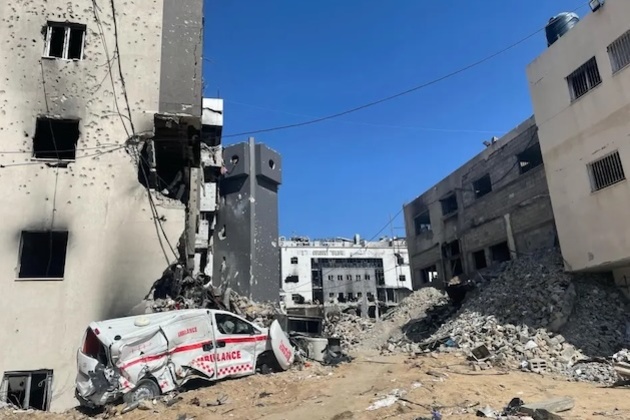Borderless haze threatens Southeast Asia
360 info
15 Aug 2022, 04:19 GMT+10
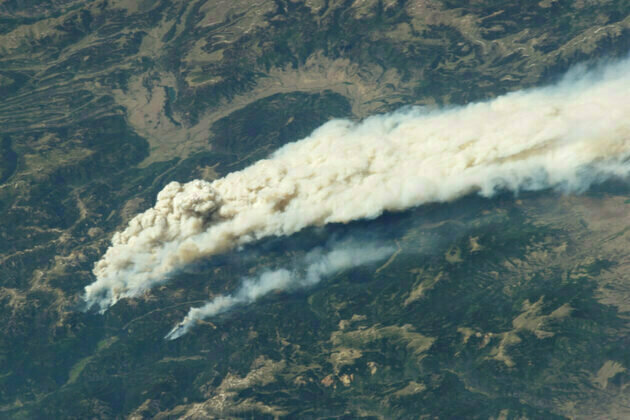
Governments, civil society and the international community need to work fast as the dry season approaches and smoke haze returns in Southeast Asia.
As Southeast Asia emerges from two years of COVID-19-induced socioeconomic slowdowns and the dry season begins, governments across the region are warning their citizens to brace themselves for the return of forest-fire haze.
The clock is ticking as the Association of Southeast Asian Nations (ASEAN) works to develop a new Haze-Free Roadmap after an independent review found that the vision of the original roadmap, of a "Haze-Free ASEAN by 2020", has not been fully achieved.
Haze severely disrupts regional economies by reducing productivity and tourism while increasing emergency medical spending. The 2015 haze was estimated to have cost US$16 billion in Indonesia alone, while a less severe episode in 2019 cost an estimated US$5 billion.
The biomass particles making up the haze are extremely dangerous to human health. As small as 2.5 microns, the particles can easily enter the lungs and bloodstream. This can cause short- and long-term respiratory, dermatological and ophthalmological problems, especially in young children and adults.
The 2015 haze episode caused 40,000 to 100,000 additional deaths in Indonesia, Malaysia and Singapore, according to studies. And recent research suggests people regularly exposed to significant levels of air pollution can be more susceptible to diseases such as COVID-19.
With Southeast Asians having already spent decades intermittently breathing in smoke haze, the return of this form of air pollution is of great concern.
Most haze-producing fires occur in disturbed peat swamps in Kalimantan (the Indonesian part of Borneo), on the Indonesian island of Sumatra and to a lesser extent in Malaysia. Peat swamps are naturally waterlogged, but when they are drained for agriculture the carbon-rich soil dries out quickly and becomes extremely fire-prone.
Fires occur intentionally (to prepare the land for planting) and accidentally (from lightning or cigarette butts). Peat fires can burn for long periods underground, and they release especially potent smoke that can travel across vast distances and national boundaries. They are also close to impossible to suppress without heavy rainfall.
In especially bad episodes, haze can reach almost all Southeast Asian nations. The haze is transboundary not only in its effects but also in its causes. Alongside local commercial palm-oil and pulpwood plantations operating on peat, foreign plantations have been linked to fires.
Malaysian interests own 18 percent to 30 percent of Indonesian palm-oil plantations, and Singaporean firms also feature prominently. Even though large-scale intentional burning to clear land has decreased over the years thanks to increased scrutiny, commercial drainage and water-management operations often disrupt peat hydrology in and around plantations. This can increase the risk of large-scale fires in surrounding communities.
Laws and regulations prohibit large-scale plantations in sensitive, fire-prone peatlands, but they are rarely enforced.
Patron-client networks are commonplace in the business culture of Indonesia and other Southeast Asian nations. In these symbiotic relationships the person with the higher socioeconomic position (patron) exercises their influence and resources to provide for the person of lower status (client) in exchange for support, assistance and services. In the case of plantations, government 'patrons' often shield their business 'clients' from scrutiny and punishment. This results in a culture of impunity: only a handful of companies have been prosecuted for causing fires.
National pride comes into play too, and patronage can function even across borders: the home governments of foreign plantations have defended their companies against accusations of causing haze. Complaints and requests from affected countries to Indonesia to control its fires often dissolve into finger-pointing as each country blames the other's plantations for causing the fires.
Haze has also sparked diplomatic rows. Indonesia has infamously labelled complaining neighbours as being ungrateful for the fresh air that Indonesia provides them outside the haze season, and Indonesia has openly chided Singapore for putting into place an extraterritorial law that would hold liable any entity that causes haze in Singapore.
The complex transboundary nature of the problem means haze cannot be addressed by any individual country. Even the solutions offered by ASEAN have been underwhelming. It is notable that one of the only legally binding agreements under ASEAN is the 2002 Agreement on Transboundary Haze Pollution, but its operationalisation has been hampered by delayed ratification by Indonesia, lack of clarity over the functions of the ASEAN Specialised Meteorological Centre and uncoordinated assistance efforts.
Still, hope for clean air in Southeast Asia remains. The Roundtable for Sustainable Palm Oil, the world's most recognisable multi-stakeholder certification scheme for palm-oil production, includes principles and criteria related to peatlands and fires. And work continues on the new Haze-Free Roadmap.
Civil-society movements such as the Clean Air Network in Thailand, PM Haze in Singapore and CERAH in Malaysia have worked to keep haze on the public (and, therefore, government) agenda even outside the haze season.
As the 2022 dry season approaches, action at local, national and international level could stop the progress of recent years from going up in smoke.
Dr Helena Varkkey is an Associate Professor of Environmental Politics in the Department of International and Strategic Studies at Universiti Malaya in Kuala Lumpur, Malaysia. Her monograph The Haze Problem in Southeast Asia: Palm Oil and Patronage was published by Routledge in 2016. Her research interests are transboundary haze cooperation, global palm oil politics, and climate governance. Dr. Varkkey declares no conflict of interest and does not receive special funds in any form.
Originally published under Creative Commons by 360info.
The post Borderless haze threatens Southeast Asia appeared first on 360.
 Share
Share
 Tweet
Tweet
 Share
Share
 Flip
Flip
 Email
Email
Watch latest videos
Subscribe and Follow
Get a daily dose of Vietnam Tribune news through our daily email, its complimentary and keeps you fully up to date with world and business news as well.
News RELEASES
Publish news of your business, community or sports group, personnel appointments, major event and more by submitting a news release to Vietnam Tribune.
More InformationSoutheast Asia
SectionUS bill seeks sanctions on Pakistan's Army Chief, demands Imran Khan's release
Washington, DC [US], March 25 (ANI): A bipartisan bill introduced in the US Congress on Monday seeking to impose sanctions on Pakistan's...
India rejects Pakistan's remarks on Jammu and Kashmir at UN, calls for peacekeeping reforms
New York [US], March 25 (ANI): India strongly rejected Pakistan's repeated references to Jammu and Kashmir at a United Nations debate...
Malaysian economy expected to grow between 4.5 pct, 5.5 pct in 2025
This photo taken on Jan. 29, 2024 shows a night view near Petronas Twin Towers in Kuala Lumpur, Malaysia. (Xinhua/Cheng Yiheng) KUALA...
Pak: Two sentenced to death for honour killing in Toba Tek Singh
Punjab [Pakistan], March 25 (ANI): A court in Toba Tek Singh on Monday sentenced two men to death for the murder of Maria Bibi, who...
Indian Army, Air Force to get 800 Km strike range BrahMos supersonic cruise missiles
New Delhi [India], March 24 (ANI): In a significant boost for the defence forces, the Indian Army and the Air Force are going to get...
MSLTA gears up for Billie Jean King Cup challenge in Pune
Pune (Maharashtra)[India], March 24 (ANI): Pune will host the prestigious Billie Jean King Cup Asia-Oceania Group-1 tournament for...
International
SectionNew York court blocks law allowing over 800,000 non-citizens to vote
NEW YORK CITY, New York: New York State's highest court has struck down a law this week that would have allowed over 800,000 legal...
40 times more people killed in Gaza than in the 7 October attack
The death toll in Gaza on the weekend has passed 50,000, local health authorities have reported. What started the carnage was the Hamas-led...
USDA pledges $100 million for bird flu research, vaccine development
WASHINGTON, D.C.: The U.S. Department of Agriculture (USDA) has announced plans to invest up to US$100 million in research to develop...
US HHS orders removal of gun violence public health advisory
WASHINGTON, D.C.: The U.S. Department of Health and Human Services (HHS) has removed a 2024 advisory from its website that called gun...
Regulatory hurdles may leave US behind China in autonomous tech
WASHINGTON, D.C.: Industry leaders are pushing the Trump administration to clear regulatory obstacles slowing the rollout of self-driving...
Israeli forces accused of deadly cruelty against Gazan hospital patients
NEW YORK, New York – Israeli military forces caused deaths and unnecessary suffering of Palestinian patients while occupying hospitals...


